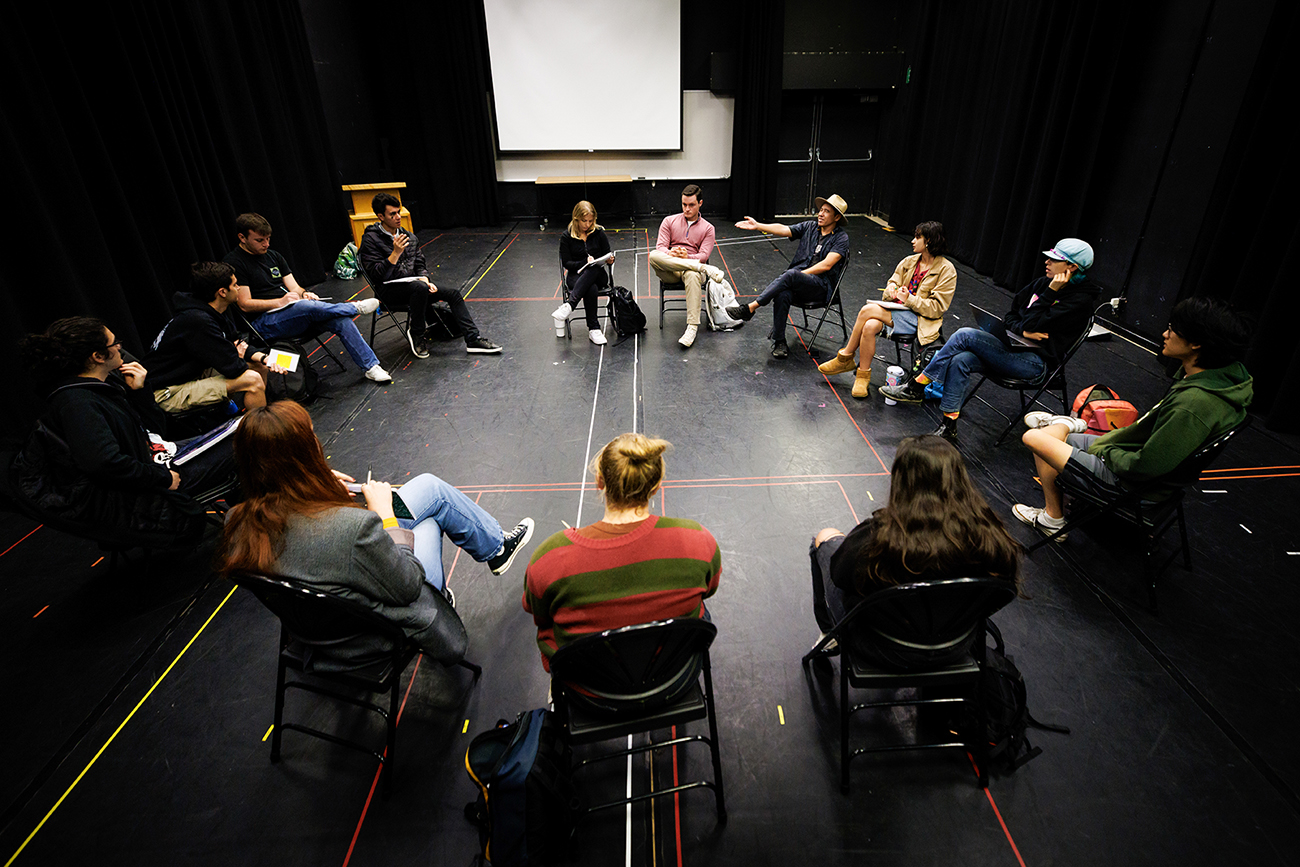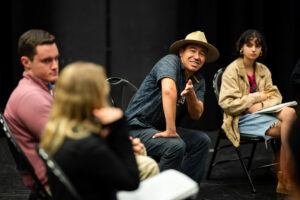Family Drama
In the new theatre course combining history and art, students tell stories inspired by their own families — and learn something about themselves.

A young woman is riding a bus from the Mexican state of Jalisco to Sacramento with one dress in her suitcase and no money. A man from Palermo, Sicily, is forced to make moonshine for the mob, even though he’s trying to start a new life with his family in America. The son of an American military officer grows up stationed at a WWII Japanese internment camp, but eventually becomes a freedom rider.
These pitches might sound like a Hollywood production meeting, but instead, students in Andrew Saito’s ancestral theatre class are sharing stories about their grandparents as ideas for their class project: an original play related to their family ancestry.
“Students’ first assignment was to speak with relatives and ask about as many generations in the past as could be remembered,” said Saito, a visiting faculty member from SUNY Purchase, hosted by the College of Liberal Arts’ Susan Currier Visiting Professorship for Teaching Excellence endowment. “Some students shared very specific stories from their grandparents — for example, one student spoke of her grandmother’s exodus from Angola, and another brought in family photos going back generations.”
After gathering information about their families’ histories, students then flesh out the stories to develop the script for an original play — identifying gaps in the genealogies and using historical research and their own imaginations to try to fill them in.
It gives me more personal stakes and motivates me to make sure I’m getting things right and give this the respect it deserves.
Saito was surprised to learn that more than half the class were history majors, but working at the intersection of history, theatre and family ancestry helped students connect with their research on a personal level.
“Normally when I write about history, it’s about people I’m removed from,” said Eric Monjoy, a second-year history major. “With this project, these are people I’m related to, and in some cases are still alive today and talking with me. It gives me more personal stakes and motivates me to make sure I’m getting things right and give this the respect it deserves.”
Students learned to incorporate different types of primary sources into their research and channel those findings into creative writing as they looked at historical events through the lens of family members’ experiences.

Visiting faculty member Andrew Saito leads a discussion about family stories.
“It’s been really valuable to learn how to explore oral histories, which aren’t typically as respected in the history world, and how to put them into something creative,” said Molly Ford, a second-year history major. “We don’t normally get to explore these non-traditional histories as much, but it’s a valuable skill.”
Through writing, revision and feedback from their peers, students realized that historical research and creative writing can overlap much more than expected, and that there are differences between how their family members may have experienced historical events compared to how those events are observed from the outside.
“It’s like the difference between a mirror and a photograph: how you see yourself versus how you’re seen,” said James Eichler, a fifth-year history major. “Your relationship with how you understand your own family members and how you humanize figures from history changes.”
Students will have written about 30 pages of a first draft by the end of the quarter, a first-time experience for most of the non-theatre majors. Saito hopes they will apply these newfound research skills to whatever career path they choose and continue observing how their ancestry informs their own stories.
“Ancestry factors into almost every play,” said Saito. “As human beings who all come from many generations of human beings before us, we all have ancestry, even if we’re cut off from it. I hope that each student will obtain a deeper sense of who they are and where they come from.”


